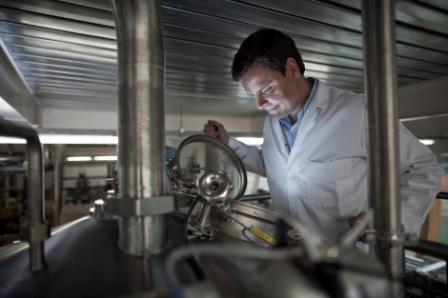 , the world’s second-largest brewer, is scaling up its globally-recognised sustainable development programmes with a set of ambitious new targets to achieve by 2020. The business, which is recognised as a leader for embedding sustainability into its operations, has pledged to:
, the world’s second-largest brewer, is scaling up its globally-recognised sustainable development programmes with a set of ambitious new targets to achieve by 2020. The business, which is recognised as a leader for embedding sustainability into its operations, has pledged to:* Directly support over half a million small businesses, to help them grow, improve their livelihoods and drive local development
* Achieve a world-class water efficiency target of 3.0 litres per litre of beer and secure the water supplies it shares with local communities through watershed partnerships at every site that faces water risks
* Reduce carbon footprint of the entire value chain from grain to glass by 25% per litre of beer, and an average of 50% across all its breweries
* Measurably improve food security and resource productivity by developing targets by crop and growing region
* Encourage moderate and responsible alcohol consumption by scaling up global and local programmes to reach all SABMiller beer consumers.
This new programme, branded Prosper, is the latest evolution of the company’s approach to sustainable development, which is a key element of SABMiller’s business strategy. At its heart is supporting the role small businesses play around the world in generating economic growth and reducing poverty. SABMiller is using its value chains from farmers to retailers to drive inclusive growth, sustainable resource use and alcohol responsibility.
Alan Clark, chief executive of SABMiller, comments: “Today society faces major challenges and the stakes are getting higher: poverty, water scarcity, climate change, food security and alcohol-related harm all demand urgent attention to secure a prosperous future. These pressing issues are shared by communities, businesses and governments and we must solve them together. Only those companies that are prepared to be part of the solution will be successful in the long term, and that’s why this approach is integral to our business strategy.”
Andy Wales, director of Sustainable Development, says: “Beer is essentially a local product, and we have deep roots in the local communities where it is brewed and consumed. Our business-focused approach to sustainability has already developed innovative models of watershed protection, created new beers using local crops such as sorghum and cassava, and driven significant cost savings from carbon and water efficiency. This is a natural next step to support our future growth path.”





